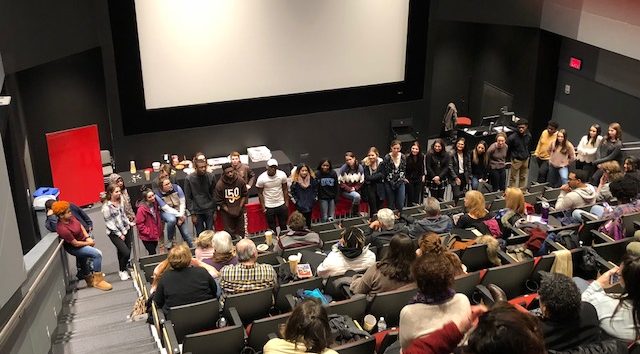I’ve been thinking about the role documentaries play in shaping important conversations. I was listening to Serial from NPR in my car and wondering if a criminal case was reopened on public airwaves, would it make a difference? Or, would this man stay in prison without a retrial? I had read A History of Documentary Film earlier and remembered a section on films that shape social discourse. (I had to re-read it for examples) Filmmaker Stanley Nelson made films that exposed under-represented issues in popular culture. His film The Murder of Emmett Till reopened an inquiry into the brutal murder of 14 y/o Emmett Till in 1955. The Paradise Lost trilogy created public support for the release of the “West Memphis Three”, falsely accused of the murder of three young boys. The directors of Paradise Lost, Joe Berlinger and Bruce Sinofsky are excellent examples of filmmakers who allowed their film to evolve from a story about poverty and the legal system into an investigation using cameras. This evolution was also noted by Errol Morris who said “I investigated a murder with a camera – an oddity in and of itself, it was not telling a story about a murder investigation, it was the investigation – and evidence was accumulated with that camera.” I googled an update on Adnan Syed (the prisoner in Serial) and he’s been granted a retrial.

The power that a good documentary commands is truly amazing. As you stated in your post, the work of dedicated documentarians literally has changed the world. Everything from criminal justice, to nature conservation has been positively impacted by the work of dedicated filmmakers. A good documentary captivates, informs, and challenges an audience. As we move forward with our final projects we should keep the works of Morris, Nelson, and other successful documentarians fresh in our minds so as to do our best to add to the legacy of impactful documentary storytelling.